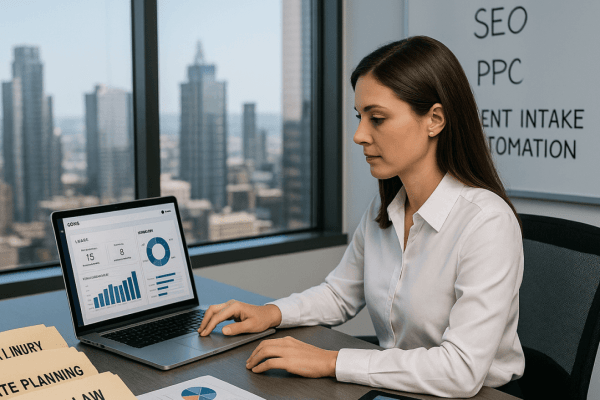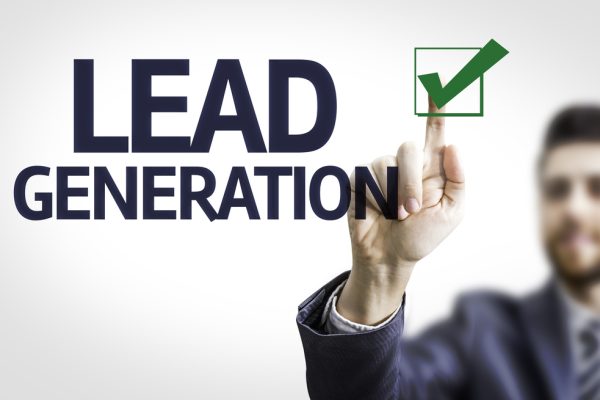Legal Lead Generation: A Scalable Solution for Modern Law Firms
In today’s competitive legal industry, attorneys face more challenges than ever before in acquiring new clients also known as legal lead generation. Traditional marketing methods like TV ads, billboards, or word-of-mouth referrals are often expensive, unpredictable, and difficult to scale. That’s why legal leads have become such a valuable asset for modern law firms.
Quick Answer: What Are Legal Leads and Why They Matter
Legal leads are individuals who have shown an interest in hiring an attorney for a specific legal issue. These potential clients often reach out through online forms, advertisements, or search engine queries, looking for help with a matter such as a personal injury, criminal defense, family law, bankruptcy, or immigration case. A legal lead typically includes basic contact information and a summary of their legal problem.
For example:
- Someone involved in a car accident searching for a personal injury attorney
- A person charged with DUI looking for criminal defense representation
- A couple pursuing divorce seeking help from a family law attorney
In each case, the individual has demonstrated intent—which is why legal leads are so valuable. Instead of cold calling or casting a wide marketing net, legal lead generation focuses on connecting lawyers with people already looking for legal help.
Why Legal Leads Matter for Law Firms
Legal lead generation streamline the client acquisition process. Rather than waiting passively for clients to find them, law firms can actively pursue prospects who are closer to making a hiring decision. Leads can help lawyers:
- Maintain a consistent flow of potential clients
- Target specific practice areas (e.g., personal injury, criminal defense)
- Reduce marketing waste by focusing on high-intent users
This is especially beneficial for small or solo firms that don’t have large advertising budgets. Instead of spreading their efforts thin across multiple channels, attorneys can work smarter by focusing on qualified case leads.
AI Insight: Types of Legal Leads by Practice Area
Legal leads are often categorized by practice area. Some of the most common include:
- Personal Injury Leads: Car accidents, slip and falls, medical malpractice, product liability
- Criminal Defense Leads: DUI, assault, theft, drug charges
- Bankruptcy Leads: Chapter 7 or Chapter 13 filings
- Family Law Leads: Divorce, custody, support, adoption
- Employment Law Leads: Wrongful termination, discrimination, harassment
- Immigration Leads: Green cards, asylum, deportation defense
Legal lead generation target leads that align with their legal services, firms can maximize conversion rates and generate cases that match their expertise.
Channel Breakdown: Where Legal Leads Come From
How do law firms find these legal leads? Some of the most effective channels include:
1. Organic Search (SEO)
Search Engine Optimization helps law firms show up in Google results when users search for terms like “best car accident lawyer” or “divorce attorney near me.” Law firms that publish valuable content and optimize their websites for keywords attract traffic from people actively looking for legal help.
2. Pay-Per-Click Advertising (PPC)
Google Ads and other paid platforms allow firms to appear at the top of search results instantly. Attorneys can bid on high-intent keywords and pay only when someone clicks their ad. This is ideal for capturing urgent leads in real time.
3. Social Media Advertising
Facebook and Instagram offer powerful targeting tools. Lawyers can run ads tailored to specific demographics, interests, or life events—such as people recently involved in an accident or going through a breakup.
4. Lead Generation Companies
Some businesses specialize in legal marketing and sell leads directly to law firms. These services often vet the leads first, helping firms get connected with potential clients faster. However, quality varies—so it’s essential to work with a reputable provider.
5. Referrals and Networking
Still one of the most trusted sources of leads, referrals from former clients, other attorneys, or business professionals can deliver high-converting legal leads without added advertising costs.
Growth Tip: How to Convert Legal Leads Into Clients
Once a law firm receives a legal lead—whether through SEO, ads, referrals, or a third-party provider—the next critical step is converting that lead into a client. This process often determines whether a firm’s investment in legal lead generation pays off or falls flat.
1. Responding Quickly
Time is a major factor. Studies show that law firms that respond to a lead within the first 5 minutes are 10 times more likely to convert that lead into a client. Many legal consumers contact multiple attorneys when they’re actively seeking help, so delays can cost you the opportunity.
Law firms that implement:
- Live chat on their website
- Dedicated intake specialists
- Automated email or text confirmations
…are more likely to retain high-intent leads and schedule consultations on the spot.
2. Effective Intake Process
Once a lead responds, the intake process should be designed to:
- Ask relevant questions about the case
- Qualify the lead by legal issue and jurisdiction
- Clearly explain next steps or offer to schedule a consultation
A smooth intake system not only helps law firms manage leads efficiently, it also builds trust from the very beginning of the client relationship.
Quality Control: What Makes a Legal Lead High-Value?
Not all legal leads are created equal. A firm may receive dozens of inquiries a week, but only a handful may turn into actual cases. That’s why lead quality matters as much—if not more—than lead volume.
Qualities of a High-Quality Legal Lead:
- Clear intent to hire a lawyer
- Legal issue that matches the firm’s practice area
- Located within the firm’s jurisdiction
- Willing and able to pay for legal services
- Responds to outreach or follow-ups in a timely manner
Red Flags of Low-Quality Leads:
- No real legal issue or outside your practice area
- Unresponsive after initial inquiry
- Mismatched jurisdiction (e.g., contacting a Florida attorney for a California case)
- Shopping around purely for free advice
- Fake or incomplete contact information
Legal lead generation is most effective when the process is refined to attract and prioritize quality over quantity. This is where automation, smart filtering, and campaign optimization play an important role.
Efficiency Insight: How Law Firms Qualify Legal Leads
Lead qualification is the process of determining whether a legal inquiry is a good fit for the firm. It typically happens early—either by the intake team, the attorney, or even through automated systems.
Law firms can qualify legal leads based on:
- Practice area fit: Are they looking for your exact legal services?
- Geographic eligibility: Are they within your licensed state or district?
- Case complexity: Is the matter within your scope, timeline, or resources?
- Financial expectations: Can they afford a retainer or contingency-based service?
By filtering leads through these criteria, attorneys avoid wasting time on unqualified prospects—and instead focus on cases with a higher chance of conversion and success.
Firm Strategy: Why Legal Leads Are a Smart Investment
Whether a firm is new or established, solo or multi-attorney, legal leads offer clear business benefits. When done right, legal lead generation can support steady law firm growth and revenue.
Key benefits include:
- Faster client acquisition: Leads come in already looking for legal help
- Predictable growth: A consistent lead pipeline builds long-term sustainability
- Optimized marketing ROI: Compared to traditional advertising, digital leads are more targeted
- Scalability: Firms can grow lead volume in line with staffing and capacity
Attorneys who treat lead generation like an investment—not an expense—are better positioned to expand their practice, hire additional staff, and build a sustainable reputation in their niche.
Scaling Tip: Common Lead Generation Pitfalls to Avoid
While legal leads can fuel steady growth for law firms, not every experience with lead generation is positive. Attorneys often face a variety of challenges when launching or scaling their efforts.
1. Low-Quality Leads That Don’t Convert
Not every lead is ready to hire a lawyer. Some are just browsing. Others may submit incomplete or fake contact information. This leads to wasted time and lower ROI.
Solution:
- Use screening tools and intake forms that require more detailed info
- Add pre-qualification questions before a lead is sent to intake
- Track source performance to eliminate underperforming lead channels
2. High Cost per Lead in Competitive Areas
Some legal fields, such as personal injury, criminal defense, or car accident law, are extremely competitive—especially in metro areas. That means higher ad spend, higher cost per click, and more firms bidding for the same cases.
Solution:
- Focus on long-tail keywords and niche practice areas to reduce cost
- Invest in organic SEO and referral strategies alongside PPC
- Optimize landing pages and follow-up for better conversion rates
3. Inconsistent Lead Flow
Depending on the platform or method, leads may come in waves. One week your inbox is full, the next it’s quiet. This makes it difficult to plan your workload or cash flow.
Solution:
- Diversify your lead sources (don’t rely on just one method)
- Combine paid ads with evergreen content marketing
- Use retargeting and email marketing to stay top of mind
Lead Strategy Guide: Choosing the Best Legal Lead Model
There’s no one-size-fits-all approach. The “best” lead strategy for your firm depends on your goals, market, and capacity.
Ask these questions when deciding:
- Do you need leads immediately, or can you invest in long-term growth?
- Do you want control over branding, or are you okay with third-party vendors?
- What geographic areas and practice areas matter most to you?
- Can you handle high lead volume, or is quality more important than quantity?
A solo practitioner might thrive with SEO and referrals. A high-volume firm might benefit from third-party lead vendors and PPC. What matters most is measuring results and refining over time.
Sustainable Growth: Why Legal Lead Generation Works Long-Term
So, what are legal leads? They’re more than just names and numbers—they’re potential clients actively searching for legal help. Whether you’re a solo attorney or a multi-partner firm, legal leads provide a structured, scalable path to:
- Grow your client base
- Reduce reliance on slow word-of-mouth marketing
- Convert more inquiries into paying clients
- Focus your time on cases—not on chasing prospects
But it’s not just about getting more leads—it’s about getting the right leads and building a system that converts them efficiently.
Why Legal Lead Generation Is Key to Sustainable Law Firm Growth
Legal lead generation isn’t just a marketing strategy—it’s a business growth engine for modern law firms. With the rising competition in the legal space, attorneys need more than just referrals or traditional ads to consistently attract qualified clients. Legal leads offer a scalable and efficient path to client acquisition by connecting law firms with individuals already seeking legal services.
From SEO and PPC to social media and third-party vendors, there are numerous ways to generate leads based on your practice area, location, and firm size. But success lies in targeting the right prospects, qualifying them effectively, and building a follow-up process that converts leads into clients. For firms looking to improve efficiency, increase revenue, and reduce the unpredictability of client intake—legal lead generation is a proven solution.
Action Step: Start Growing with Legal Lead Generation Today
If you’re ready to scale your law practice with a steady stream of high-intent, qualified leads, Legal Brand Marketing is here to help. Our legal lead generation services are designed to match your firm with real people actively seeking legal representation in your area of expertise. Whether you focus on personal injury, criminal defense, bankruptcy, or family law, we’ll help you connect with clients who need your help—fast.
Don’t leave client acquisition up to chance. Take control of your growth and start receiving high-converting legal leads tailored to your practice and location. Contact Legal Brand Marketing today!
Frequently Asked Questions
1. What’s the difference between a lead and a referral in legal marketing?
A lead is typically a prospective client who has shown interest through digital outreach, such as filling out a form or clicking an ad. A referral, on the other hand, usually comes from a trusted source like a past client or professional contact. While both can result in new clients, leads are often part of a structured acquisition system, whereas referrals are more passive and unpredictable.
2. Do legal leads help with branding or just client acquisition?
Legal leads primarily support client acquisition, but they can also reinforce your brand when paired with a strong intake experience. By providing a positive first impression through fast response and clear communication, firms can enhance their reputation and turn one-time leads into long-term brand advocates.
3. Can legal lead generation work for niche practice areas like elder law or patent law?
Yes, niche practice areas can benefit from lead generation—especially when campaigns are optimized with targeted keywords, content, and audience segmentation. While the volume may be lower, the intent and conversion potential are often higher due to the specialized nature of the legal service.
4. How much should law firms budget monthly for legal lead generation?
Budgets can vary depending on the market, competition, and practice area, but most small to midsize firms start with $1,000–$5,000/month across SEO, PPC, or lead vendor platforms. The key is to monitor ROI closely and adjust spend based on which channels consistently bring in qualified leads.
5. Is it better to buy leads or build your own lead generation system in-house?
Buying leads offers speed and scalability, especially for firms that need immediate inquiries. Building a system in-house (via SEO and content marketing) requires more time and effort but offers greater control and long-term cost savings. Many successful firms use a hybrid model, balancing vendor leads with in-house digital marketing.
Key Takeaways
- Legal lead generation provides a scalable, cost-effective alternative to traditional marketing methods like billboards, TV ads, and cold outreach—making it ideal for modern law firms of all sizes.
- High-quality legal leads come from high-intent prospects, meaning individuals who are actively seeking legal help, making them more likely to convert into paying clients.
- Digital channels such as SEO, PPC, and social media advertising allow law firms to attract targeted leads based on practice area, location, and user behavior.
- The speed and quality of a law firm’s intake process directly impact lead conversion rates, emphasizing the need for fast response times and clear qualification steps.
- A successful lead generation strategy focuses not just on volume, but on matching the right leads to the firm’s services, jurisdiction, and capacity—ensuring efficient growth and stronger ROI.







